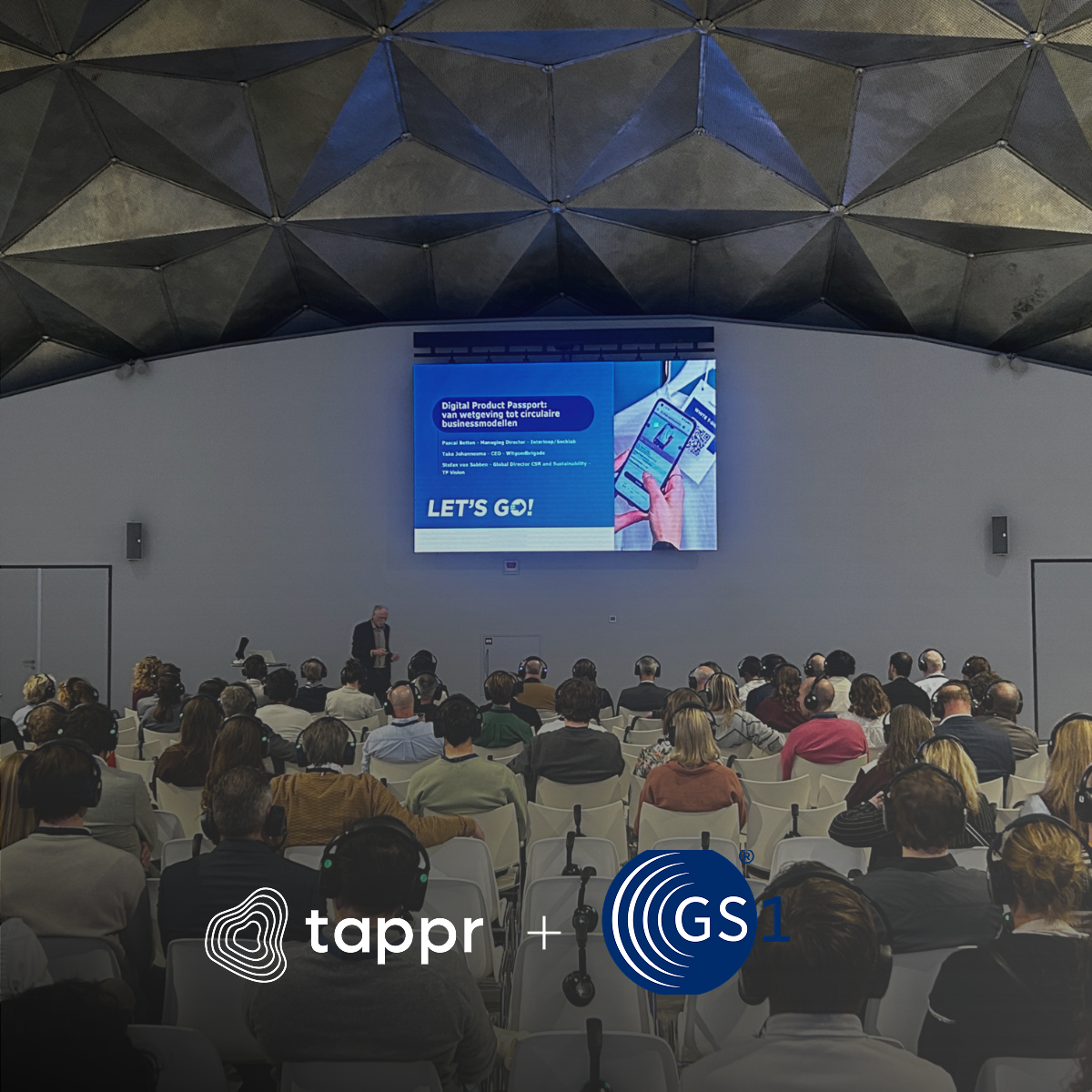Rethinking Appliance Maintenance
Ever lost a manual or spent hours finding the right spare part?
Appliance maintenance can be frustrating, but what if fixing it was as simple as scanning a QR code?
For consumers, it’s about convenience.
For technicians, it’s about speed and efficiency.
And for manufacturers, it’s about smarter service and sustainability.
That’s exactly the idea our partner De Witgoedbrigade presented on Tuesday at the GS1 Congress in Amsterdam, a pilot designed to make the maintenance and repair of home appliances smarter.
This initiative shows how something as simple as a label can change the way we interact with everyday products.
Making Repairs Smarter
We began with a simple idea: washing machine repairs can be done smarter.
Instead of treating maintenance as an afterthought, we asked: what if every appliance could tell its own story?
Together with De Witgoedbrigade, Sharp, and Vestel, we set out to reduce service costs, improve repair efficiency, and extend product lifecycles.
This collaboration brings together every part of the product journey:
- Vestel manufactures the Sharp-branded washing machines.
- Sharp drives product innovation.
- De Witgoedbrigade leads circular repair and reuse in the Netherlands.
- Tappr provides the digital technology to make it all work seamlessly.
By combining manufacturing, innovation, service expertise, and digital tools, we’re showing how smarter collaboration can make appliance care better for everyone.
Smart Labels and Digital Support
We implemented GS1-powered smart labels across an initial batch of 10,000 Sharp-branded washing machines, produced by Vestel.
Each appliance now carries a Digital Product Passport, a unique QR code linking it to real-time data throughout its lifecycle.
A Connected Experience for Everyone
By scanning the label:
- Consumers can access manuals, register warranties, and request repairs in seconds.
- Technicians can view service history, diagnostics, and parts information directly on-site.
To make support even smarter, the pilot also includes a Smart Service Bot , an AI assistant that helps both consumers and service professionals find answers fast.
Whether it’s troubleshooting an error code or locating the right spare part, the bot ensures that help is always just one question away.
Together, these tools transform each washing machine into a connected product, designed for easier maintenance, faster repairs, and a longer useful life.
The pilot demonstrates how smart labeling and AI-powered support can bring ownership, service, and sustainability together in one simple step.
Identified Benefits and Expected Impact
Although the labels are still at the manufacturing stage, the pilot has already helped us identify several expected benefits once active use begins:
- Manufacturers can potentially lower service costs through faster, data-driven repairs.
- Service partners gain better insights, tools, and digital support in the field.
- Consumers enjoy greater transparency and convenience through self-service options.
- The planet benefits from longer product lifespans and reduced waste.
These insights highlight how Digital Product Passports, supported by smart tools like the Service Bot, could enable circular service models and help build a foundation for smarter, more sustainable appliance care.
Next Steps: Toward a Smarter Future
In the first phase, 10,000 appliances were equipped with smart labels at the Vestel factory.
These labels are currently being validated for full EU compliance in data privacy and interoperability, with the first rollout planned for the Dutch market.
Once approved, the pilot will expand across Europe, setting a new standard for smarter, connected appliances.
As Digital Product Passports become the norm, every appliance could have its own digital identity, creating a world where repairing is smarter than replacing.


.svg)
.svg)

.png)
.svg)
.png)

.svg)

